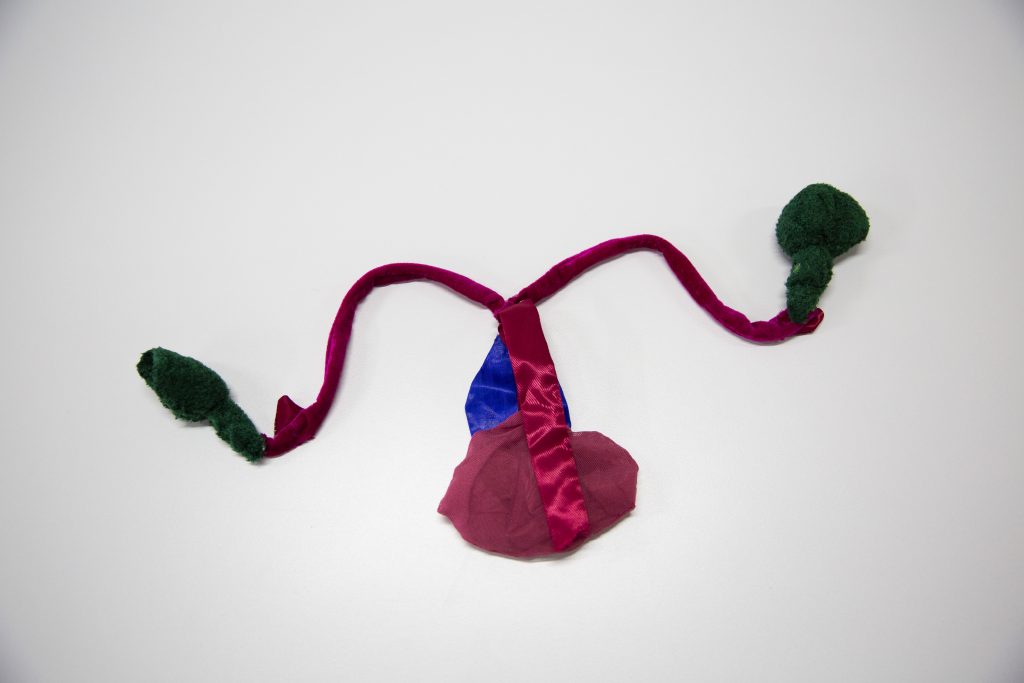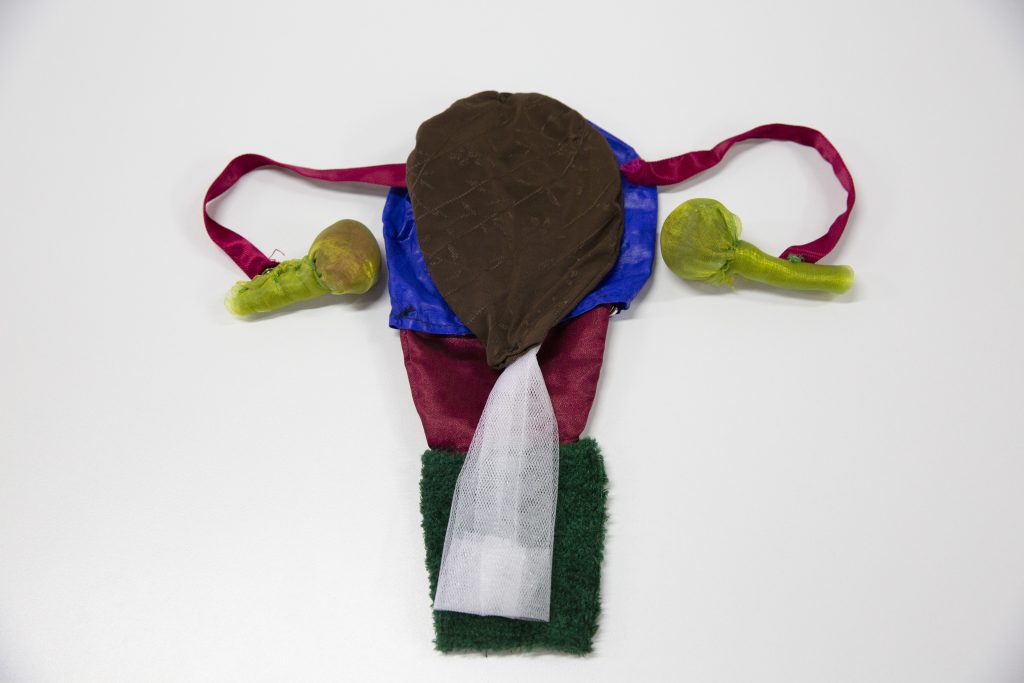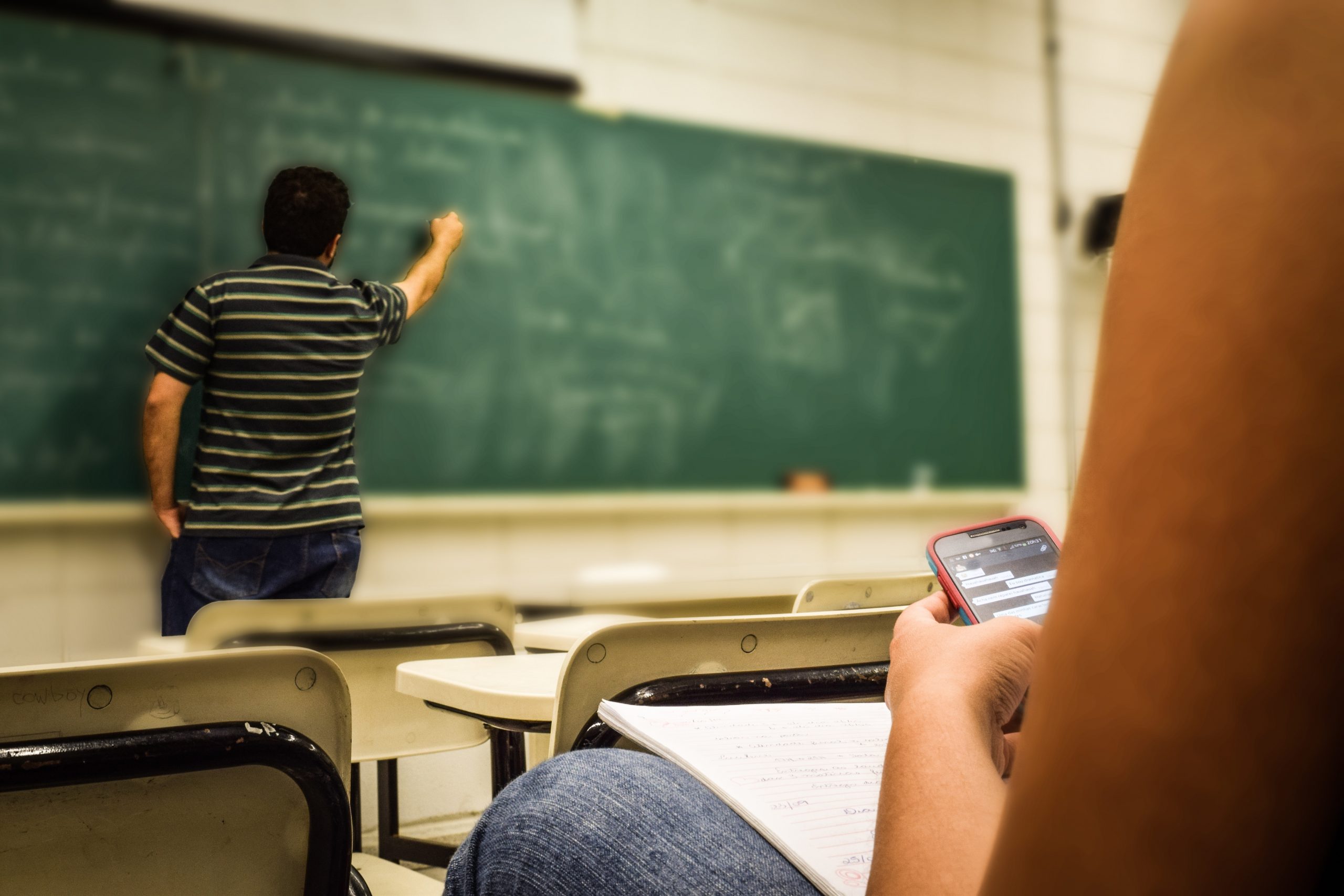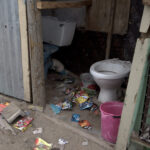In an age where more young people are having sex before the age of 15 than ever before, can we really afford to keep turning a blind eye to the birds and the bees? But good sex ed doesn’t have to pit religion against facts.
What do children reallly want to know about sex?
For more than two decades, a doctor-and-nurse team from the company Sexy Smarts have been asking learners in South African schools just that.
The organisation teaches comprehensive sexuality education to children in about 20 schools nationwide. This brand of sex ed — unlike others that might promote let’s say abstinence only — gives learners information on safer sex, preventing pregnancies or sexually transmitted infections and understanding how their choices affect others.
Doctor Eli Rosen and nurse Ruth Loubser, the duo behind the firm, charge for their services, using fees from more well-off private schools to help defray the costs of running the programme at public schools.
In the last two decades, the pair have collected nearly 15 000 queries about sex they’ve fielded from young people to discover the single most frequently asked question:
“When can I start having it?”
Behind the moral panic: Young people deserve more than “just say no”
The department of basic education publicly released its new scripted lesson plans for comprehensive sexuality education in November 2019 in response to allegations about the plans’ so-called “explicit content” made in the media.
The new plans include lectures for learners from grade four to matric about everything from contraception and bullying to relationship power dynamics. Religious groups and some teachers’ unions have since pushed unfounded claims that giving children information about their sexuality is dangerous.
But in a 2014 research review published in the journal PLoS One, scientists pitted the three traditional models of sex education against each other. That is, abstinence-only, the ABCs (Abstinence, Be Faithful and Condomise) and comprehensive sexuality education.
Comprehensive sexuality education had the most significant impact on changing behaviours that could put kids at risk of contracting HIV such as starting to have sex early, not using a condom, or having a lot of different sexual partners.
The researchers, however, noted that very few studies in the review evaluated the success of abstinence-only and ABC models.
But, a study conducted in the Eastern Cape found that lessons about abstinence had little bearing on learners’ conduct outside of class. The research was published in the journal Perspective in Education in 2015.
Today, about one in 10 young people will start having sex before the age of 15 — more than ever before, shows the country’s latest national HIV survey by the Human Sciences Research Council. About 60% of youth aged 15 to 24 reported they’d used a condom the last time they had sex — this figure is still a more than 20% decrease from 2008.
The government aims to push condom use among this group up to 100% in the next two years, according to the national HIV plan.
And many people still don’t consider themselves at risk of contracting HIV, even though the research — which anonymously tested people for HIV — found that one in 10 people who categorised themselves at being at low risk of infection was already living with the virus.
The PLoS One review also found that the most effective sexual education interventions were those that also included activities outside of school, such as training healthcare staff to offer youth-friendly services, distributing condoms as well as involving parents and communities in lesson development.
Many sex educators agree that comprehensive sexuality education is appropriate for children of all sexual identities, religions and abilities — provided teachers know what they’re doing.
In South Africa, the department of basic education has trained more than 6 000 teachers on how to deliver the country’s new sex education, which the department says is being taught this year at selected schools as part of a “pilot phase”. Departmental spokesperson Elijah Mhlanga told Bhekisisa in November that educators will receive follow-up training and mentoring on the curriculum during this time.
Lust & laws: There’s more to dating on Whatsapp than emojis.
So when can a young person start having sex?
If they can ask the question, says Sexy Smarts executive director Rosen, children deserve an honest answer. Rosen uses the pronouns “they” and “them”.
At Sexy Smarts, the response comes in the form of lessons that teach children the decision-making skills to be savvy and safe about sexual choices.
So if you want to start having sex, the organisation tells learners, you have to be ready to talk about what Rosen calls “the three C’s”: Communication, consent and contraception.
Not only must children be able to communicate about their values and what kinds of behaviours they want to engage in, but they also have to be ready for those often tricky questions about using protection, previous partners and testing for sexually transmitted infections (STIs).
Rosen often tells their pupils: “If you’re not ready to have a difficult conversation, you’re not ready for sex.”
When it comes to the “second C”, consent, young people need to know how to give and get consent — and how to do it legally, Rosen warns.
In South Africa, 16 is the age of consent. But the country’s 2007 Sexual Offences Act says children between the ages of 12 and 15 can have sex with each other legally. Similarly, the law recognises that sexual relationships may happen between teens of a similar age and allows for children aged 16 or 17 to legally have sex with people who are no more than two years younger than themselves.
Adults — people 18 and older — who have sex with children between the ages of 12 and 15 and are guilty of statutory rape.
But for young people in relationships, staying within the law is about more than just the age of the people they sleep with, Rosen says. It stretches as far as the WhatsApp messages they might send each other on their phones.
- Read more: Romeo and Juliet are sexting – Will SA’s new sex-ed prepare children for life, love and lust?
It is illegal for people under the age of 18 to view pornography, according to South Africa’s Film and Publications Act. Even though the age of consent is 16, any image a teenager might send or receive that exposes the genitals of any child or the breasts of a girl under the age of 18 is, under the law, considered child pornography, Rosen warns.
Sexting counts as child pornography too, according to the country’s Sexual Offences Act, although there hasn’t been any criminal prosecution of children for sexting under South African law yet, Rosen explains.
They say: “Children and teenagers are often dating online or over WhatsApp – they could easily fall foul of the law.”
How to teach sex ed that works for everyone
“Government cannot just sexually indoctrinate people’s children,” Errol Naidoo told Bhekisisa in November last year. He heads up the Christian think tank the Family Policy Institute.
His organisation has been vocally opposed to the new lesson plans, claiming the lectures are being pushed by sexual rights radicals and that they will promote “sinister sexual behaviours.”
He explains: “They are pushing a liberal agenda.”
Despite overwhelming peer-reviewed scientific evidence to the contrary, Naidoo says comprehensive sexual education promotes dangerous sexual behaviours and “sexually indoctrinates people’s children” with messages he calls “LGBTI propaganda”.
Asked to comment on the scientific evidence that supports comprehensive sexual education, Naidoo responded: “It’s a lie.”
Naidoo can’t produce any peer-reviewed evidence to support his claims about the alleged dangers of the department’s plans. Naidoo instead referred Bhekisisa to a research review conducted by pro-abstinence organisation, the Institute for Research and Evaluation.
The policy brief examines studies used by the United Nations, and how effective comprehensive sexuality education is influencing condom use, pregnancy, sexually transmitted infections and whether the lessons were linked to students starting to have sex. It found comprehensive sex education has a higher failure rate than abstinence-only education. But the researchers counted the results from ABC programmes under comprehensive sexual education.
University of the Witwatersrand researcher Haley McEwen says the rhetoric being used by Naidoo is linked to broader attempts to “manufacture ignorance”.
She told Bhekisisa in November that this type of misinformation is part of an international trend funded by US groups. Family Watch has launched similar petitions against comprehensive sexuality education in other African countries including Kenya.
She explained: “There’s a real effort to generate knowledge that can back some of their claims.”
Sex ed doesn’t have to be at odds with religion
But comprehensive sex education doesn’t have to be at odds with learners’ beliefs or sexualities, Rosen says.
“We’ve got a responsibility to make sure sex education includes not only lesbian, gay, bisexual and transgender people, but children from child-headed households, HIV-positive children, religious children, sexually active children and children with disabilities,” they explain.
“We look at each person as a sexual being.”
Most classrooms will have pupils from more than one of these groups eagerly awaiting information. The trick is not teaching them that certain behaviours are morally good or bad, but how to make the best decisions for themselves based on their personal values.
In the classroom, Rosen and their team ask learners where they want to be in five years and then prompt them to think about how decisions around sex, reproductive health and relationships might impact those.
Learners are encouraged to mull this over as they develop their own values and goals. But young people are also asked to examine how societal constructs around sex, love and even masculinity might shape their values — and learn to think about whether these work for them.
And if the organisation’s two decades’ long database of sex questions from children is anything to go by, even young learners are all too aware of how society thinks about sex and identity.
“When can I have sex?” may be the most frequently asked sex education question, according to the thousands of questions Sexy Smarts has fielded over the years.
But “Is my penis big enough?” is a close second.

Are SA teachers equipped for Sex Ed 2.0?
Good sex ed may start with a lesson plan, but it’s only ever as good as the people teaching it. Sexy Smarts runs a two-day programme for educators and health workers that lays out how to answer difficult questions — or when to simply say “I don’t know”.
Rosen warns that if South Africa is going to get the department of basic education’s latest sex ed action plan right, training for teachers has to ensure that educators reflect on their own biases that might come between children and the information to which they are entitled.
They explain: “If you come from a homophobic background where you’ve been told that being gay is an abomination – you will not be able to give accurate information to LGBTI children.”
Anthony Brown is a Life Orientation and inclusive education lecturer at the University of Johannesburg’s department of educational psychology. He says that the new scripted lesson plans give enough background to equip Life Orientation educators to deliver them properly – granted they are already trained as life skills teachers.
But, he says, there are few schools that take Life Orientation seriously enough to appoint a specialised educator.
Even though at least three of the country’s universities offer specialised Life Orientation training for school teachers, the subject is often left up to whoever has a free period, he argues.
He explains: “Schools think that just because you have navigated through life, you should be able to teach Life Orientation — but life doesn’t equip you to teach sex ed.”
In South Africa, one-in-three children will have experienced sexual violence by the time they reach 17, a University of Cape Town study found. This figure, however, also includes consensual sex between 17- and 18-year-olds, which is legal in South Africa.
Teachers will need to be equipped to handle situations in which students might learn they are being abused during class time, Brown says.

Elisabetta Borzini has first-hand experience of the importance of training those tasked with teaching comprehensive sexual education in complicated settings. She developed a series of sex ed games for the joint United Nations Programme on HIV/Aids (Unaids). The games are now being rolled out at youth friendly centres and health facilities in Zambia’s capital Lusaka and the country’s mineral-rich Copperbelt Province, which has been historically hard hit by HIV, according to the latest UN data from 2014.
As part of the activities, young people — depending on their age — can assemble male and female reproductive systems while learning about how they work. In another version, players are dealt cards — for instance, “Do babies and urine come from the same place?” or “What are the three pillars for a healthy relationship” — as their answers propel them forward and back along a snakes-and-ladders-like board.
Only trained moderators facilitate the games. And in a country where homosexuality remains criminalised, those leading children through the games are taught not to disclose anybody’s HIV status or sexual orientation.
Participants, on the other hand, are also warned not to offer up any sensitive information. “It’s only a safe space while I’m there to moderate,” Borzini says. “I can’t control what people will do when they get back into the communities.”
And she noticed something amazing.
With a properly trained moderator, people felt comfortable to open up about sex and sexuality. In some cases, groups built so much trust during the game session – in which she says discussions can become very intimate – that they seemed unphased when they were told they were speaking to people who may be queer, HIV-positive, sex workers or injecting drug users.
Borzini explains: “The idea is to get everyone on the same page. Then, it’s all a lot more human.”
[Updated 11:30 am 24 January 2020 This story was updated to reflect that children between 12 and 15 can have sex under South African law, and that any adult who has sex with a person under 16 is guilty of statutory rape. In addition, a reference to “disabled children” was changed to “children with disabilities” and “sexually active children” was added to the quote to reflect Rosen’s original statement.]
[Updated 10:10 am 12 February 2020 Additional context was added to clarify comments made by Errol Naidoo.]
Joan van Dyk was a health journalist, senior health journalist and news editor at Bhekisisa between 2017 and 2023.




